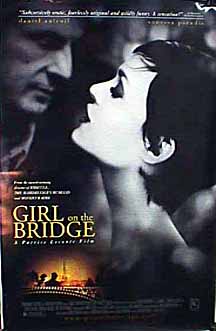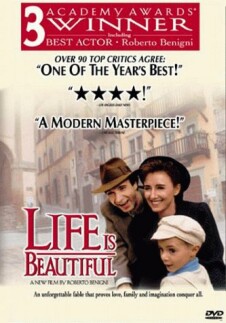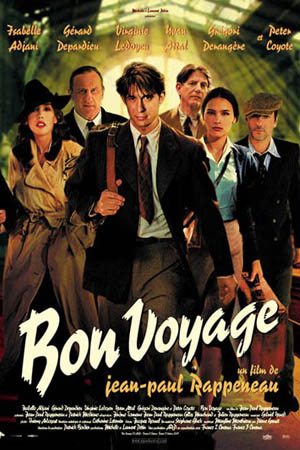House of Mirth, The
“She was too good for this life. .
.” wrote Philip Larkin of the
graffiti-covered bathing beauty on the advertising poster for
“Sunny
Prestatyn” and his ironic pity came to
mind as I watched Gillian Anderson piling up the pathos as Lily Bart in Terence
Davies’s screen adaptation of Edith
Wharton’s novel, The House of
Mirth. Miss Anderson shows that she has real talent, but it is expended in
an unworthy cause. She is like some Thomas Hardy heroine who has been
preternaturally unlucky in her choice of friends and lovers, so that by the time
we leave her we are as relieved as the other friends who cannot help her to say
good-bye to someone so obviously and inexplicably cursed.
In Mr Davies’s retelling,
Lily’s misfortunes are the result
neither of plain bad luck nor of a Hardyean-style divine malevolence. Instead
they spring directly from the iniquity of the social system that unfortunately
prevailed in this country a hundred years ago, dominated as it doubtless was by
the heartless upper classes and supported by a veritable host of religious nuts,
racists, sexual hypocrites and miscellaneous oppressors of women.
Lily’s rich Aunt Penniman (Eleanor
Bron) is here a mere caricature, pretending to be shocked by
Lily’s
“gambling”
and immediately asking: “Do you play
on Sunday too?” This is the portrait
of a mad prig, a fanatic, who ruins Lily out of mere capriciousness. Likewise,
Bertha Dorset (Laura Linney), Grace Stepney (Jodhi May) and Gus Trenor (Dan
Aykroyd) are scarcely to be acknowledged human beings, so black and gratuitous
is their malignity to poor Lily.
I must say that I didn’t remember
Lily as being quite so much the victim of this society, quite so much the
secular saint and martyr as she is depicted as being in the movie. Somehow I had
it lodged in my mind that the novel had not been a political hagiography but a
domestic tragedy, in which, like all tragic heroes, Lily is at least partly the
author of her own downfall and (almost) as much sinning as sinned against. I
don’t say positively that I was
mistaken, or that I was not. It may be a defensible reading of the text to turn
it into this kind of political melodrama, reminiscent of nothing so much as the
“socialist
realist” propaganda of an era slightly
later than that in which it was written. If so, it is not the novel I thought it
was.
In any case, Davies is, as you might almost expect in a movie made in the
aughts of this century about the aughts of the last, much less interested in a
shrewd and trenchant adumbration of the nature of
“society”
than in the lives of the feminist saints. Actually, Lily the feminist saint is
rather shrewdly done, as she is perfectly calculated to appeal to what I take to
be the peculiarly feminine style of self-pity. Doubtless the much more
liberally-minded society matrons of our own era will enjoy shedding a tear or
two over Lily’s melancholy fate and
vicariously sharing in her posthumous satisfaction at how sorry both her weak
friends and her hateful enemies will be when they know the full extent of her
sufferings. And they will love as much the idea of being hard done by for having
to marry a man and of being equally hard done by if a treacherous girlfriend
prevents her from marrying the same man.
Thus the movie ends with a tableau vivant (or, I suppose, a tableau
mourant) of Laurence Seldon (Eric Stoltz) kneeling and weeping by
Lily’s deathbed, finally confessing
that he loves her. He could do little for her, and now it is too late. This pose
is very much in the style of the film and at the same time one of its many
period details. Lily herself appears in a tableau vivant as
“Summer”
by Watteau at a society gathering earlier in the movie, and the static,
artificial style suggests the kabuki-like, stylized drama in which this Lily is
caught up. Both she and her society are too perfect. Every detail of dress and
furnishings and manners has been perfectly recreated for cinematic
representation. At one point as she walks through the streets of New York, we
are allowed to hear a political orator on his soapbox inveighing against the
Russian czar—just to remind us that it
is 1905. This is history come to life.
But that is just the problem with it. What we miss is the messiness of real
life, just as we miss the humanity both of Lily, who is too good, and of those
who ruin her, who are too bad. Something, to be sure, survives of the novel, and
Mr Rosedale (Anthony LaPaglia) has actually been cleaned up a bit. The mild
anti-Semitism suggested by his portrayal by Edith Wharton was (probably rightly)
judged by Davies to be a distraction from his larger purposes. But even if
that had been allowed to survive, we might have had more of a sense of
New York society a century ago as it really was and not as it could be dressed
up and posed to be, a Platonic image of what the last century is supposed to
have extinguished. Without manners, without formalities, without a clearly
understood moral code to guide our public lives, we are meant to be grateful
that we are not as these people were. If, like mine, your gratitude is tempered
by regret for what we have lost, this movie will have little to offer you.
Discover more from James Bowman
Subscribe to get the latest posts to your email.






